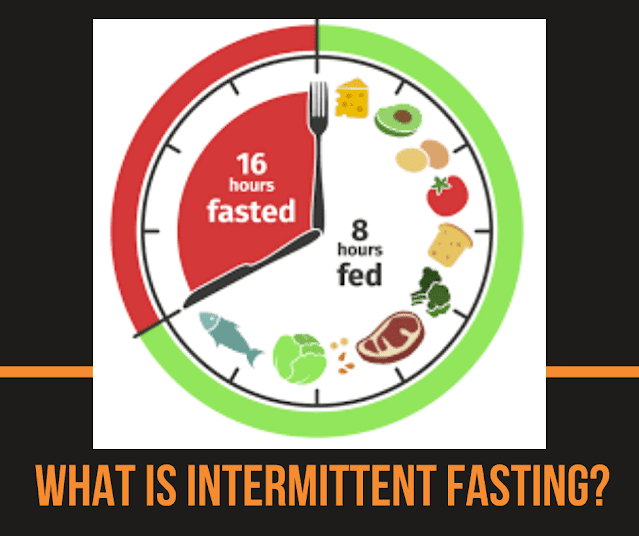What is Intermittent Fasting?
Intermittent fasting is an eating pattern that only allows you to eat at certain times. For example, only 4 hours a day. Or 8 hours. Or 5 days a week. For the rest of the time, you should forget about food, limiting yourself to drinking - water or (in mild variants of fasting) vegetable and fruit juices are allowed.In 2017, intermittent fasting became a viral trend in Silicon Valley. It is known that top managers of large companies arrange corporate hunger strikes, going on diets with their employees. And this was preceded by the Nobel Prize in Medicine and Physiology, received in 2016 by the Japanese Yoshinori Osumi.
The scientist investigated the process of autophagy - the mechanism by which living cells get rid of defective proteins and organelles. In the process of observation, Yoshinori Osumi found out that the degree of autophagy, that is, the speed of getting rid of accumulated "garbage", depends on the level of energy in the cells. When energy is low (the cell is hungry), it destroys damaged or old proteins more intensively, making them a source of energy.
Osumi made his discovery on hungry baker's yeast. And Silicon Valley startups decided to experiment with their own organisms. And they liked it.
What interval fasting days look like
There are different options for Intermittent fasting, but the essence is the same. The day or week is divided into two-time intervals. In one interval, you can eat whatever you want. On the other, nothing is allowed but drinking. Depending on how these time intervals relate, Intermittent fasting is divided into several types. American Medical Resource Healthline for example, lists such popular options:
intermittent fasting 16/8 meal plan
This scheme assumes 16 hours of fasting and 8, - for receiving food. For example, a person can eat between 10 and 18 o'clock in the afternoon, accommodating 3-4 meals during this period. The rest of the time, he is limited to drinks.Intermittent fasting 14/10 meal plan
This is one of the most gentle Intermittent fasting options. 14 hours of hunger here alternate with 10 hours when you can eat anything. Almost everyone can do such a regime because when translated into the daily schedule, it means something like this: you can eat whatever you want from 10 am to 8 pm.Intermittent fasting 24/0 meal plan
Quite a radical option, which is a daily fast between meals. Let's say you had breakfast at 11:00. This means that the next time you eat, too, at 11:00 - exactly in a day. Unlike the schemes listed above, this option should be approached more carefully and not be used more than once or twice a week.Intermittent fasting 2/5 meal plan
Here, the account is not for hours, but for a day. The Intermittent fasting Scheme, developed by Michael Mosley, author of The Fast Diet, assumes that you can eat whatever you want 5 days a week and limit yourself as much as possible for 2 days. However, this is not necessarily a complete rejection of food. Just on a hungry day, you can not consume more than 500 kcal.How Intermittent Fasting Works
You are losing weight
The most obvious effect of Intermittent fasting days is weight loss. Due to the rather long fasting intervals, the body receives fewer calories, which quickly affects the waist and hips. As shown in research, on average, weight is reduced by 3–8% in 3–24 weeks. However, the Intermittent fasting effect is not limited to slenderness.Reduces the risk of type II diabetes, In particular, the body's sensitivity to insulin increases, which causes a decrease in the level of this hormone in the blood. And low insulin makes the body more actively recycle existing fat into energy. sediments... It also reduces the risk of diabetes Type II ...
Aging slows down
Intermittent fasting enhances the body's resistance to oxidative stress - one of the main provocateurs of aging and chronic diseases.Improves heart health
Intermittent fasting reduces the effects of a number of risk factors that can negatively affect the cardiovascular system. Thanks to him, blood pressure is normalized and the general condition of the heart and vessels ...The development of oncology slows down
Animal experiments, at least this confirms
Fasting cycles retard the growth of tumors and sensitize a range of cancer cell types to chemotherapy...Intermittent fasting inhibits the growth of tumor cells and at the same time increases the effectiveness of chemotherapy, which means it increases the chances of winning the fight against cancer.
Improves brain function
Absolutely - in rats: have intermittent fasting caused growth of new nerve cells in the brain. The rodents' memory and learning abilities have improved.Scientists are also disposed of the influence of Intermittent fasting on the human brain. optimistic... It is assumed that it can become one of the methods of preventing all kinds of brain disorders, including depression. For example, there is evidence that daily intermittent fasting can reduce symptoms of illness. Alzheimer's in 9 out of 10 patients.
All in all, intermittent fasting can be a pretty good thing that can improve your quality of life. So it makes sense to give it a try. Unless, of course, your therapist doesn't mind.

